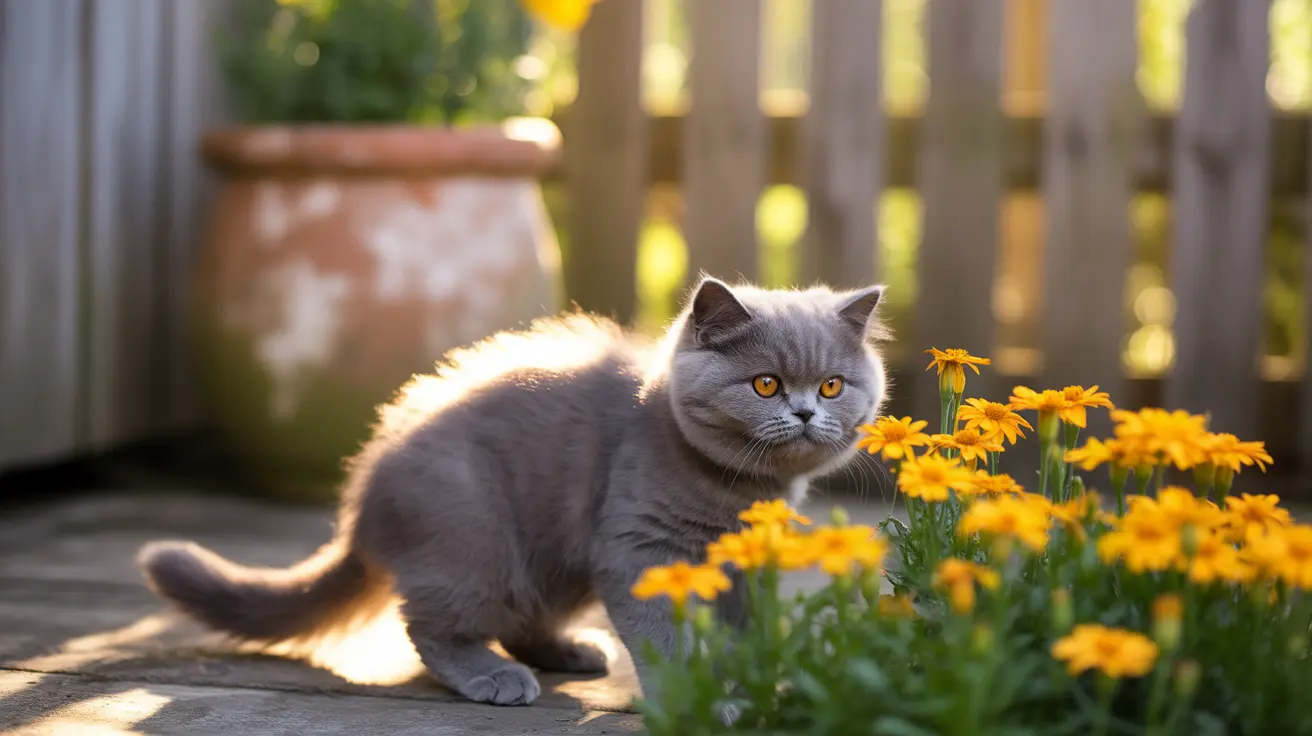Many cat owners who enjoy gardening wonder about the safety of common flowers around their pets. Marigolds, with their bright and cheerful blooms, often raise particular concern. The answer isn't as straightforward as you might think – different species of marigolds can pose varying levels of risk to our feline friends.
In this comprehensive guide, we'll explore which marigold varieties are safe for cats, which ones could cause problems, and how to identify the difference. We'll also discuss what symptoms to watch for and how to keep your cat safe while still enjoying these beautiful flowers in your garden.
Understanding Different Marigold Species
Not all marigolds are created equal when it comes to cat safety. The key distinction lies in the plant genus:
Pot Marigolds (Calendula officinalis)
These marigolds are completely safe for cats. Also known as calendula, these flowers have been used for centuries in herbal medicine and are non-toxic to both cats and dogs. They feature bright orange or yellow blooms and are often grown for their medicinal properties.
French Marigolds (Tagetes patula)
These common garden marigolds can cause mild toxicity in cats if ingested. While not severely dangerous, they can lead to digestive issues and discomfort. They're characterized by their compact size and ruffly flowers in various shades of orange, yellow, and red.
African Marigolds (Tagetes erecta)
Similar to French marigolds in terms of toxicity, these larger flowers can also cause mild stomach upset in cats. They're distinguished by their tall stems and large, pom-pom-like blooms.
Signs of Marigold Toxicity in Cats
If your cat has consumed toxic varieties of marigolds, watch for these symptoms:
- Drooling or excessive salivation
- Vomiting
- Diarrhea
- Mild lethargy
- Loss of appetite
- Oral irritation
Prevention and Safety Measures
To keep your cats safe while enjoying marigolds in your garden:
- Stick to pot marigolds (Calendula officinalis) if you have indoor-outdoor cats
- Create designated pet-safe garden areas
- Use physical barriers to prevent access to French or African marigolds
- Consider container gardening to keep plants out of reach
- Monitor your cat's outdoor activities
Treatment and When to See a Vet
Most cases of marigold ingestion are mild and resolve on their own. However, contact your veterinarian if:
- Symptoms persist for more than 24 hours
- Your cat shows signs of severe lethargy
- There's continuous vomiting or diarrhea
- Your cat stops eating or drinking
Frequently Asked Questions
Are pot marigolds (Calendula officinalis) safe for cats to be around or eat?
Yes, pot marigolds are completely safe for cats. The ASPCA lists them as non-toxic, and they won't cause harm even if ingested.
What symptoms should I watch for if my cat eats French marigold (Tagetes patula)?
Watch for drooling, vomiting, diarrhea, and mild lethargy. Most symptoms are mild and self-limiting but contact your vet if they persist.
How can I tell the difference between non-toxic pot marigolds and mildly toxic French marigolds?
Pot marigolds have simple, daisy-like flowers with single layers of petals, while French marigolds have more compact, ruffly blooms. Check plant labels or consult a garden center for proper identification.
What should I do if my cat shows signs of marigold poisoning like vomiting or drooling?
Remove access to the plant, provide fresh water, and monitor your cat closely. If symptoms persist beyond 24 hours or worsen, contact your veterinarian.
Are marigolds more or less toxic to cats compared to other common garden plants like lilies or azaleas?
Marigolds are significantly less toxic than many other garden plants. While they may cause mild discomfort, they don't pose the severe risks associated with true lilies (which can cause kidney failure) or azaleas (which can be fatally toxic).
By understanding which marigolds are safe and which might cause problems, you can make informed decisions about your garden while keeping your feline friends protected. Remember, when in doubt, consult with your veterinarian or choose certified pet-safe alternatives for your garden.






